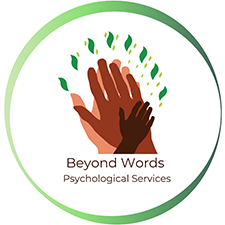Why Abuse Can Create Learned Helplessness
Many of us have wondered: If a person is being abused, why don’t they tell someone about it and get help? Or if it’s an adult who is being hurt, why don’t they leave the relationship? It sounds like common sense, but the truth is, leaving an abusive relationship can be extremely difficult for both children and adults. This is because abuse is not about harm – it is about power.
Regardless of whether the abuser is a parent or partner, their goal is to gain control and power over the relationship through means such as producing fear, making threats, manipulation or physical harm. While many of us are familiar with the definition of physical abuse and can understand the obvious harm that is caused by this type of abuse, there are lesser known forms of abuse that tend to have more severe and long-term consequences on the victim. Verbal abuse (name-calling), emotional abuse (neglect, degradation, humiliation) and psychological abuse (manipulation, threats) are much more common than physical abuse in both spousal and parent-child relationships, and these three types of abuse frequently accompany physical abuse.
While the effects of physical abuse are more obvious, the effects of verbal, emotional and psychological abuse are more difficult to spot – however, they are typically the reason that a victim has difficulty leaving an abusive relationship. Let’s take this example: How did you learn that 2+2=4? Most likely, this was repeated to you over and over by people in your life who had some kind of authority, and you were given examples of why this was true, so eventually you came to believe it. Verbal, emotional and psychological abuse work in much the same way: If you are constantly told that you are incompetent, ugly or worthless by an authority figure or someone who is close to you, such as a parent or partner, and they point out examples that reinforce these statements (e.g. a child failed a spelling test, or a spouse burned dinner), eventually you are likely to believe there is some truth to these hurtful statements. Over time, such beliefs may become a very significant part of your sense of identity, causing you to believe that you do not have value or deserve better than what you are currently receiving in an abusive relationship. Oftentimes, the perpetrator of the abuse is likely to point out to the victim that they are “lucky” to have someone who stays with them and puts up with their many flaws.
This is where the term “learned helplessness” is key. If you believe you are no good and everything you do is inferior or wrong, you are likely to feel a huge loss of control over your life. If, no matter how hard you try, you are still constantly receiving the message that your efforts are not good enough, strong feelings of helplessness and powerlessness are likely to surface, because you do not feel that you have control to change the things in your life that are “wrong.” So, if you do not have the power to change things for the better, it may feel easier to just resign yourself to the way your life is now – furthermore, there is no guarantee that changes will be for the better. This often results in a decision not to seek help, even if the victim has not been threatened by their abuser “not to tell anyone.” The victim has learned that they are helpless to better their situation, and gives up trying, thus not seeking help or pressing charges.
While many other factors also play a role in learned helplessness and abusive relationships (e.g. multiple calls about domestic violence incidents that have not resulted in charges, or calls to child welfare that have not resulted in an investigation), the factors described above are significant. Next week’s blog will offer suggestions about how you can help a person in an abusive situation who is having trouble leaving or reporting the abuse; the link below also offers ideas.
Link of the Week: THE-CYCLE-OF-ABUSE
Next Week’s Blog: Ways to Help a Friend Who is Afraid to Report or Leave an Abusive Relationship
